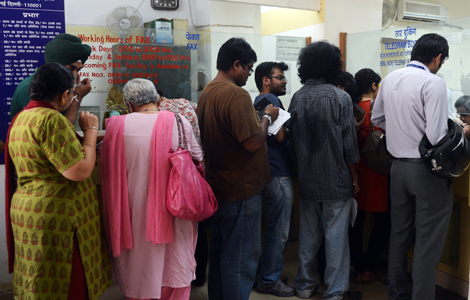US must honor promise
Updated: 2013-07-15 07:13
(China Daily)
|
||||||||
The world's two largest economies vowed to prevent exchange rate policies from going out of control at the fifth China-US Strategic and Economic Dialogue last week. Since China has a consistent record of contributing to global rebalancing through exchange rate liberalization, the United States should pay more than just lip service to the issue.
The two countries have promised to abide by the commitments made under the G20 framework and refrain from following exchange rate policies that could damage global financial stability. The US' quantitative easing (QE) policy went against this commitment by keeping interest rates at zero in the aftermath of the global financial crisis, which drove down the dollar and created a volatile atmosphere across international financial markets. Rapidly rising inflation in emerging market economies is just one of the negative outcomes of the QE policy.
The US is known for engineering its monetary and exchange rate policies to suit its economic needs. In the 1990s, for example, its weak dollar policy drove international capital into East Asia and pushed up local asset prices. Later, as the dollar strengthened, international capital flew out of the region, triggering the 1997-98 Asian financial crisis.
Although the US claims its policies are domestic in nature, they have global ramifications because of the unmatched clout of the American economy and the dollar.
The dollar is again showing signs of gaining strength at a time when rising asset prices have become a trend in some emerging economies. And once the dollar regains its full strength, the emerging markets will suffer a deadly blow because of a volatile global financial market. The turbulence in the global financial markets that followed the US Federal Reserve's announcement of a possible tapering off of its bond-buying stimulus scheme could be a prelude to the problems emerging economies will face.
China has continued with its exchange rate reform, and the resulting revaluation of the yuan has helped global rebalancing in recent years. And its ratio of current account surplus, which reflects trade balance, to GDP has slumped to below 3 percent from about 10 percent at its peak in 2007.
While China and the US both should honor their commitments, Washington should take special care not to harm other countries' economies when it devises its exchange rate policies.
(China Daily USA 07/15/2013 page10)

 US star sprinter fails drug test
US star sprinter fails drug test
 Protests erupt after verdict
Protests erupt after verdict
 Color Run in London promotes healthy living
Color Run in London promotes healthy living
 Urumqi residents hand in weapons
Urumqi residents hand in weapons
 Pool jammed in summer heat
Pool jammed in summer heat
 Last stop for the telegrams of India
Last stop for the telegrams of India
 Heavy rain, strong winds as Soulik heads inland
Heavy rain, strong winds as Soulik heads inland
 8 dead, 19 injured after bus leaves road in Jinghong
8 dead, 19 injured after bus leaves road in Jinghong
Most Viewed
Editor's Picks

|

|

|

|

|

|
Today's Top News
Four GSK China execs held for investigation
Asiana survivors coping with post traumatic stress
China's Q2 GDP growth slows to 7.5%
Canada mourns victims of train accident
Air crash students return to families
Snowden says he won't release harmful US data
Local governments face financing woes
Zimmerman not guilty
US Weekly

|

|






